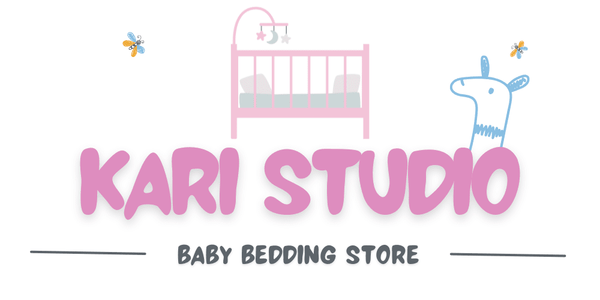Gentle sleep training has caught the attention of parents searching for sleep solutions that don’t leave their babies in tears. Contrary to beliefs that sleep training means endless crying, studies show that gentle sleep methods can improve infant sleep quality without hurting the parent child bond. The real twist is that these techniques not only help babies fall asleep but actually support their brain development and emotional growth.
Table of Contents
- What Is Gentle Sleep Training And Its Importance?
- The Theoretical Foundations Of Gentle Sleep Training
- Key Concepts Behind Gentle Sleep Training Methods
- Real-World Applications Of Gentle Sleep Training
- Understanding The Impact Of Gentle Sleep Training On Development
Quick Summary
| Takeaway | Explanation |
|---|---|
| Gentle sleep training prioritizes emotional well-being. | This approach supports healthy sleep habits while ensuring that babies feel secure and loved throughout the process. |
| Consistency in bedtime routines is crucial. | Establishing predictable routines helps infants prepare for sleep and reduces anxiety, promoting better sleep outcomes. |
| Adapt techniques to your baby’s developmental stage. | Different ages require specific strategies; remain flexible to your child’s unique progression in learning sleep skills. |
| Responsive parenting strengthens emotional security. | Acknowledging and validating your baby’s emotions fosters trust, helping them learn to self-soothe effectively. |
| Create optimal sleep environments for success. | Factors like room temperature and lighting are essential in signaling sleep readiness, making transitions smoother for infants. |
What is Gentle Sleep Training and Its Importance?
Gentle sleep training represents a compassionate approach to helping babies develop healthy independent sleep patterns without causing emotional distress or compromising their sense of security. Unlike traditional sleep training methods that might involve prolonged crying, gentle sleep training prioritizes the baby’s emotional well-being while gradually teaching them self-soothing skills.

Understanding the Core Principles
Gentle sleep training is fundamentally about creating a supportive sleep environment that respects the baby’s natural rhythms and emotional needs. Pediatric sleep researchers have found that these approaches can significantly improve infant sleep quality without negatively impacting the parent child attachment.
Key principles of gentle sleep training include:
- Maintaining consistent bedtime routines
- Responding to the baby’s needs with empathy
- Gradually introducing independent sleep skills
- Creating a calm and predictable sleep environment
Why Gentle Sleep Training Matters
Sleep training is more than just getting your baby to sleep through the night. It’s about establishing healthy lifelong sleep habits and supporting the baby’s emotional development. When done gently, sleep training can help reduce parental stress and promote better overall family well-being.
The ultimate goal is to help babies learn to fall asleep independently while feeling secure and loved. By using responsive and gradual techniques, parents can support their child’s natural sleep progression without causing unnecessary emotional strain. You can learn more about creating the ideal nursery environment to complement your gentle sleep training approach.
The Theoretical Foundations of Gentle Sleep Training
Gentle sleep training emerges from sophisticated psychological and developmental frameworks that prioritize the holistic emotional development of infants. Unlike traditional behavioral approaches that focus solely on sleep outcomes, this method considers the intricate psychological processes underlying infant learning and attachment.
Attachment Theory and Sleep Development
Developmental psychologists have extensively studied how infant sleep patterns connect with emotional security and parent child bonding. Attachment theory suggests that responsive and consistent parental interactions during sleep training create a foundational sense of trust and safety.
Key psychological principles underlying gentle sleep training include:
- Maintaining emotional responsiveness
- Supporting gradual skill acquisition
- Respecting individual developmental pace
- Minimizing psychological stress
Neurological Perspectives on Sleep Learning
Neurological research reveals that infant brains are dynamically developing neural pathways related to sleep regulation. Gentle approaches recognize that sleep skills are learned progressively, requiring patience and understanding of each child’s unique neurological development.
By integrating responsive techniques with developmental understanding, gentle sleep training acknowledges that sleep is not just a physiological process but a complex emotional learning experience. Parents who embrace this approach recognize that building sleep skills involves more than training behaviors. You can explore additional nursery design strategies that complement these developmental principles and create optimal sleep environments.
Key Concepts Behind Gentle Sleep Training Methods
Gentle sleep training methods represent a nuanced approach to supporting infant sleep development that goes far beyond traditional behavioral techniques. These methods recognize the complex emotional and neurological landscape of early childhood, emphasizing connection, responsiveness, and gradual skill acquisition.
Responsive Parenting and Sleep Learning
Child development experts highlight that gentle sleep training is fundamentally about creating a supportive learning environment where babies feel secure while developing independent sleep skills. The approach prioritizes the child’s emotional experience over rigid behavioral modification.
The following table summarizes the key principles and their explanations behind gentle sleep training, as mentioned throughout the article to clarify the core foundations of the approach.
| Principle | Explanation |
|---|---|
| Consistent Bedtime Routines | Establishes predictability and reduces anxiety, preparing infants for restful sleep. |
| Emotional Responsiveness | Parents respond empathetically to the baby’s cues, fostering trust and security. |
| Gradual Skill Introduction | Babies are gently encouraged to develop self-soothing abilities at their own pace. |
| Supportive Sleep Environment | Factors like calm lighting, comfortable temperature, and minimal noise signal sleep readiness. |
| Flexibility for Developmental Differences | Techniques are adapted to each baby's unique stage and needs for effective learning. |
Core principles of responsive sleep training include:
- Creating predictable bedtime routines
- Acknowledging and validating infant emotional states
- Providing comfort without creating sleep dependencies
- Adapting strategies to individual child temperaments
Developmental Readiness and Individual Differences
Every infant develops sleep skills at a unique pace, influenced by neurological maturation, temperament, and environmental factors. Gentle sleep training methods recognize that there is no universal one size fits all approach. Parents must remain flexible and attuned to their baby’s specific developmental signals and readiness.
Understanding individual differences means recognizing that some babies might require more time and support in developing sleep independence. You can explore safe sleeping guidelines to complement your gentle sleep training approach and ensure your infant’s comfort and security during this critical developmental stage.
Real-World Applications of Gentle Sleep Training
Gentle sleep training transforms theoretical concepts into practical strategies that parents can implement in their daily routines. This approach provides a compassionate framework for helping infants develop healthy sleep habits while maintaining emotional connection and responding to individual developmental needs.
Creating Consistent Sleep Environments
Sleep research studies demonstrate that consistent sleep environments play a crucial role in successful gentle sleep training. Parents can create supportive conditions that signal sleep readiness and help babies transition more smoothly between wakefulness and rest.
Key elements of an optimal sleep environment include:

- Maintaining consistent room temperature
- Using soft, dimmed lighting during bedtime
- Minimizing external noise and distractions
- Establishing predictable pre-sleep routines
Adapting Techniques to Different Ages and Developmental Stages
Gentle sleep training is not a static approach but a dynamic process that evolves with the infant’s growth.
Different developmental stages require nuanced adjustments to sleep training strategies. What works for a three-month-old will differ significantly from techniques appropriate for a one-year-old.
Parents must remain flexible and attentive, recognizing that sleep development is a gradual journey of learning and adaptation. You can learn more about creating safe and comfortable nursery spaces that support healthy sleep patterns and contribute to your gentle sleep training approach.
Understanding the Impact of Gentle Sleep Training on Development
Gentle sleep training extends far beyond teaching infants how to fall asleep independently. It represents a holistic approach to supporting comprehensive childhood development, addressing critical neurological, emotional, and cognitive growth processes through intentional sleep learning strategies.
Neurological and Cognitive Development
Developmental psychology research demonstrates that gentle sleep training positively influences brain maturation and cognitive skill acquisition. By establishing consistent sleep patterns, infants develop essential neurological connections that support learning, memory consolidation, and emotional regulation.
Key developmental benefits include:
- Enhanced neural pathway formation
- Improved memory consolidation during sleep
- Better emotional self regulation skills
- Increased capacity for focused attention
Emotional Intelligence and Attachment
Contrary to traditional concerns, gentle sleep training does not compromise infant attachment. Instead, it reinforces emotional security by providing predictable, responsive caregiving. Infants learn to trust their environment and develop confidence in their ability to self soothe, which are crucial emotional intelligence foundations.
Parents play a critical role in this process by maintaining emotional availability and adapting techniques to their child’s unique developmental needs. You can explore essential tips for first time parents to further support your child’s holistic development during this transformative period.
Create a Calm and Safe Sleep Space for Gentle Sleep Training
Gentle sleep training emphasizes a soothing environment where your baby can develop healthy sleep habits and emotional security. If you worry about your baby’s comfort or struggle with making bedtime routines predictable and calming, choosing the right nursery essentials is a crucial first step. Many parents find that even small changes—like using a soft barrier to enhance the sleep space—can make a big difference in your child’s sense of safety as they learn new sleep skills. Discover how thoughtfully designed products can help reduce night wakings and support your child’s independent sleep journey.

Give your baby the gift of comfort and confidence with a braided crib bumper from Kari Studio. Our collection offers gentle support while maintaining safe sleep guidelines, allowing you to create a nurturing sleep setting that fits beautifully within your gentle sleep training routine. Make your nursery a calm retreat tonight by exploring our trusted options at Kari Studio. Shop now to set up a restful foundation for your baby—because small changes today can lead to a lifetime of healthy sleep habits.
Frequently Asked Questions
What is gentle sleep training?
Gentle sleep training is a compassionate method designed to help babies develop independent sleep skills while prioritizing their emotional well-being. It avoids traditional methods that involve prolonged crying, focusing instead on creating a supportive and responsive sleep environment.
How does gentle sleep training differ from traditional sleep training?
Gentle sleep training emphasizes emotional responsiveness and gradual skill acquisition, unlike traditional methods that may use stricter behavioral modifications.
To help readers distinguish between approaches, the table below compares gentle sleep training and traditional sleep training based on key characteristics discussed in the article.
| Approach | Emotional Responsiveness | Method | Impact on Parent-Child Bond | Focus |
|---|---|---|---|---|
| Gentle Sleep Training | High, responsive to baby's needs | Gradual, supportive; avoids prolonged crying | Strengthens emotional security and trust | Emotional well-being and gradual skill acquisition |
| Traditional Sleep Training | Low to moderate; may involve ignoring cries | Structured; often uses behavioral modification techniques | Can risk straining attachment if prolonged crying is used | Independent sleep via strict behavioral routines |
What are some key principles of gentle sleep training?
Key principles of gentle sleep training include maintaining consistent bedtime routines, responding to the baby’s needs with empathy, gradually introducing independent sleep skills, and creating a calm and predictable sleep environment.
How can gentle sleep training benefit my baby’s emotional development?
Gentle sleep training supports emotional development by reinforcing a sense of security and trust between the baby and parents. It helps infants learn to self-soothe, contributing to their emotional intelligence and healthy attachment patterns.

